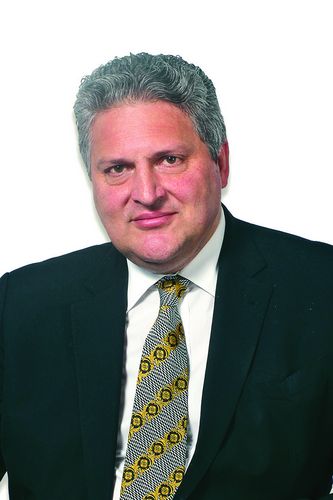Investment banking is a funny old game. Especially for Credit Suisse’s Brian Chin. Just think about it: you’re happily buzzing along as head of securitised products, a long-standing marquee product at the bank.
The bank hits a bump in the road and your empire is responsible for a chunk of the US$1bn-plus in reported trading losses in illiquid and distressed credit and structured finance; losses that everyone initially denies knowing anything about as the hot potato gets chucked around and new boss Tidjane Thiam makes a series of bizarre disassociative assertions to the world’s media and to shareholders, soon after the bank’s chunky rights issue.
The bank then says it’s going to exit European securitised product trading, global distressed credit trading and long-term illiquid funding, and offload large illiquid US CLO positions. Gotta be curtains for Chin, right? You’d think.
Wrong. Chin and David Miller, head of credit products and former DLJ leveraged finance supremo – the very people you might have assumed would have been sacrificed to take the rap and save senior executive blushes – get promoted in March to co-head global credit. That looked odd to the outside world and I’m imagining that when they got the nod it was greeted with something of a shock by the duo in that “who, me?” kind of way.
I guess that after 30 years’ service at the firm, O’Hara’s face just didn’t fit any more
That was six months ago. So today global markets head Tim O’Hara gets tin-tacked after barely 10 months in the job and Chin ends up sitting on the executive board. And long-serving utility executive Eric Varvel, the safe pair of hands who’s had more jobs in recent years than you can shake a stick at, gets the job of running CS’s Intermediate Holding Company, on top of his current role running asset management.
In welcoming Chin to the executive board, Thiam said he had been “one of our strongest risk managers and has been an integral part in developing the strength of our Global Markets franchise”. Excluding the losses, right Tidjane?
Miller, incidentally, isn’t getting to run the credit gig as solo pilot just yet; he remains co-head and the bank is expected to announce a replacement for Chin’s old position.
I guess that after 30 years’ service at the firm, O’Hara’s face just didn’t fit any more as Credit Suisse continues to line up long-serving executives to take the rap for the poor showing in the trading division by shooting them in the back of the head and kicking them out the back door (think Gael de Boissard).
Ironically, the bank said it had made substantial progress in global markets in the second quarter, moving towards “a more cost and capital-efficient business with a significantly reduced risk profile”. Capital usage decreased significantly; the bank said it was operating within its end-2016 RWA and leverage exposure targets and had substantially lowered risk year-on-year (thanks to the sale of its US distressed trading portfolio and inventory reductions in those pesky illiquid assets).
Bottom line: global markets was profitable in Q2 (reporting pre-tax income of US$156m) while net revenues rose 33% relative to Q1 (but were 19% lower over the year because of the reduction in capital usage).
Which makes the timing of O’Hara’s red card a little strange. Hey ho. Next stop the investor day on October 21 and Q3 results on November 3. So not long to wait. But then again, six weeks can be a long time in investment banking. Just ask Tim.
